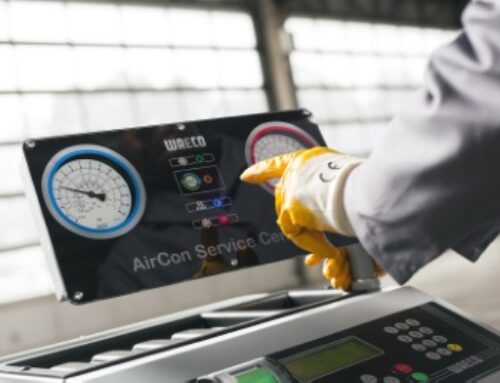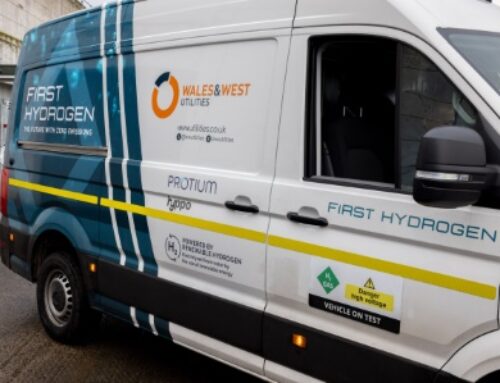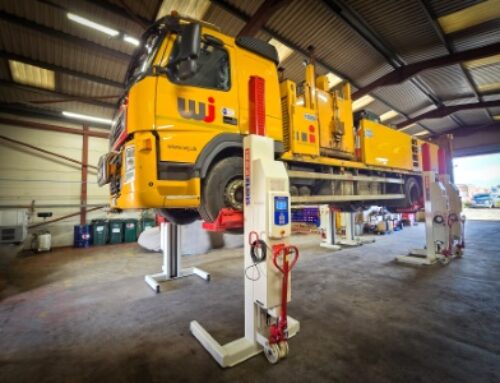Opinion: switching to gas
 Ben Sawford, chief commercial officer at Gasrec, says that new emissions evidence is highlighting the benefits of natural gas vehicles
Ben Sawford, chief commercial officer at Gasrec, says that new emissions evidence is highlighting the benefits of natural gas vehicles
The gas vehicle market is set to go through a dramatic step change in the coming year, as further emissions evidence emerges to highlight the benefits of natural gas vehicles.
Early users of these vehicles, which began with dual fuel conversions back in 2012, are now increasingly looking to OEM manufacturers to supply the next generation of low emission gas vehicles and replace current ageing fleets.
Support for gas-powered heavy goods vehicle adoption has never been so widespread, with new evidence recently published demonstrating that first generation OEM manufactured Euro 6 dedicated gas vehicles already outperform the latest Euro 6 diesel counterparts, particularly on their air quality emissions performance.
These benefits sit alongside the commercial benefits of gas vehicle ownership, which deliver annual savings of between £15,000 and £30,000 per vehicle (dependent on duty cycle) and provide a compelling reason to switch to gas.
And with the product improving as each new model is launched, this positive performance gap – both on emissions and economics – can only be expected to increase. Leading manufacturers such as Iveco, Scania and Volvo have already launched dedicated gas vehicles and are all expected to launch new models over the next 18 months to meet other duty cycles.
One inescapable truth is that because the molecular composition of gas is intrinsically ‘cleaner’ than diesel, gas is naturally a cleaner burning fuel than diesel.
Importantly, from a particulates emissions perspective, gas engines do not need the after-burn technologies typically used by Euro 6 diesel engines to achieve emissions standards. From an air quality performance perspective, under real world driving conditions, gas engines should always out perform Euro 6 diesel engines.
perform Euro 6 diesel engines.
The reality is that gas vehicles are available now and gas fuel remains the only currently available and viable alternative to diesel particularly at the heavy end of the spectrum. Additionally, with such compelling economics and the availability of a growing UK refuelling infrastructure, it is hard to see how operators will not look to gas as a natural choice over diesel.
In January this year, the Government’s long awaited Low Carbon Truck Trials report was published. This provides credible, analytical data on the performance of natural gas vehicles.
Armed with this evidence, industry body the NGV Network rightly lobbied the Mayor of London to back gas-powered HGVs for cleaner London air. In a letter to the Mayor, later published by the Network, its CEO and former development minister Mike Foster, said:
“HGVs are estimated to account for 16 per cent of UK road transport greenhouse gases (GHGs); 21 per cent of road transport NOx emissions yet make up just five per cent of vehicle miles travelled and less than two per cent of vehicle numbers. Their disproportionate environmental impact suggests an area ripe for action.
“The report suggests that compared to a diesel Euro 6 engine, a gas-powered equivalent reduced NOx emissions by 41 per cent (on average) over a variety of cycles.
“NO2 emissions were down by 74 per cent, on the same like-for-like basis. Tail pipe carbon emissions were down, and on a well-to-tank basis, carbon dioxide savings are also significant.
“For gas vehicles using biomethane, the GHG savings are, to quote the report, “significant”. This backs up evidence we have seen from a gas-filling station project in Leyland (just off the M6) used by Waitrose, which has seen GHG reductions using gas-powered vehicles.
“This is why it is vital for government, at all levels, to recognise and support the significant role that gas can play as a cleaner transport fuel, both now and in the future.”
These findings have also been supported by a Transport for London study published at the end of January by LowCVP. Despite its focus on London, the report, entitled Emissions Testing of Urban Delivery Commercial Vehicles, also highlighted the air quality benefits of natural gas delivery vehicles, particularly in reductions of harmful NO2 emissions.
Many of these findings are also echoed by manufacturers. Emissions testing from Iveco reveals that new Euro 6 gas-powered HGVs can deliver an impressive reduction of 96 per cent less particulate emissions and 78 per cent less NOx emissions, along with a yearly CO2 emissions cut of up to 19 tonnes per vehicle compared to Euro 6 diesel emission standards.
The same results show that the CO2 savings could be up to a staggering 100 tonnes per vehicle each year, if a biomethane-LNG blend of fuel was used.
Achieving these types of benefits is critical. The 2008 Climate Change Act set an ultimate target for 2050 of an 80 per cent reduction in GHG emissions from 1990 levels.
In addition, the 2008 Ambient Air Quality Directive sets legally binding limits for major pollutants that impact public health such as particulate matter (PM10 and PM2.5) and nitrogen dioxide (NO2).
In a report published by Gasrec in December 2015, entitled Driving change to low emission transport, we highlighted that of around 35 million vehicles operating on UK roads, some four million – or just 11 per cent – carried a disproportionately high responsibility for health-linked pollution.
This proportion, which was made up of light commercial vehicles, HGVs, buses and coaches, produced over 40 per cent of the UK’s road transport CO2 emissions, along with nearly half the NOx and a substantial amount of particulate matter – both major causes of health-damaging air quality.
We suggested that if just one per cent of these vehicles in the four categories were replaced by natural gas-powered equivalents, the UK could benefit from a yearly CO2 reduction of over 64,000 tonnes and a reduction in NOx emissions of some 13 tonnes.
We are now starting to see solid analytical evidence to back this up. Natural gas vehicles are earning their right to be a key technology in the transport mix to meet challenging future environmental targets. At the same time, they allow UK operators to gain commercial advantage and use a transport solution that is intrinsically cheaper than diesel.











